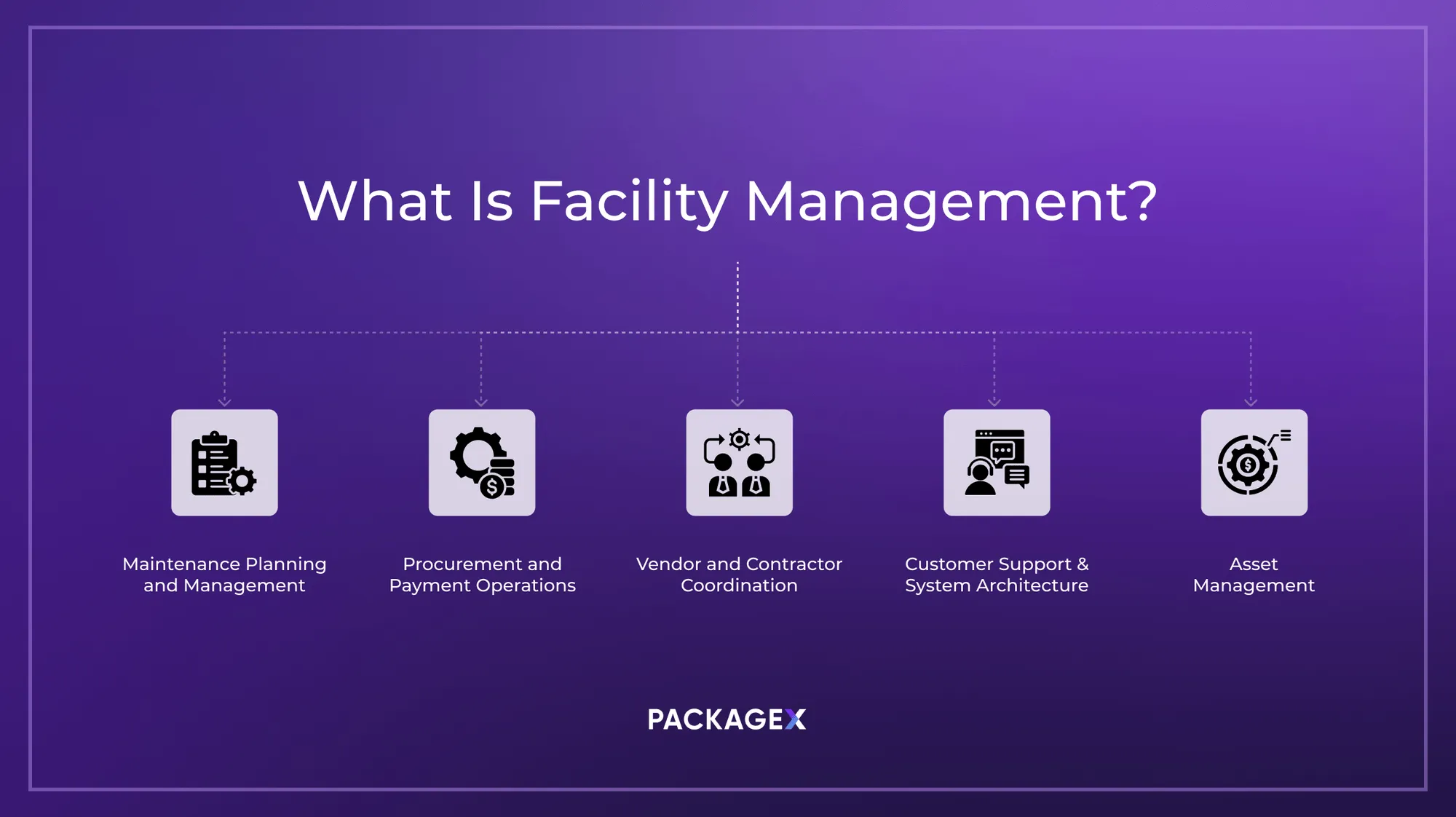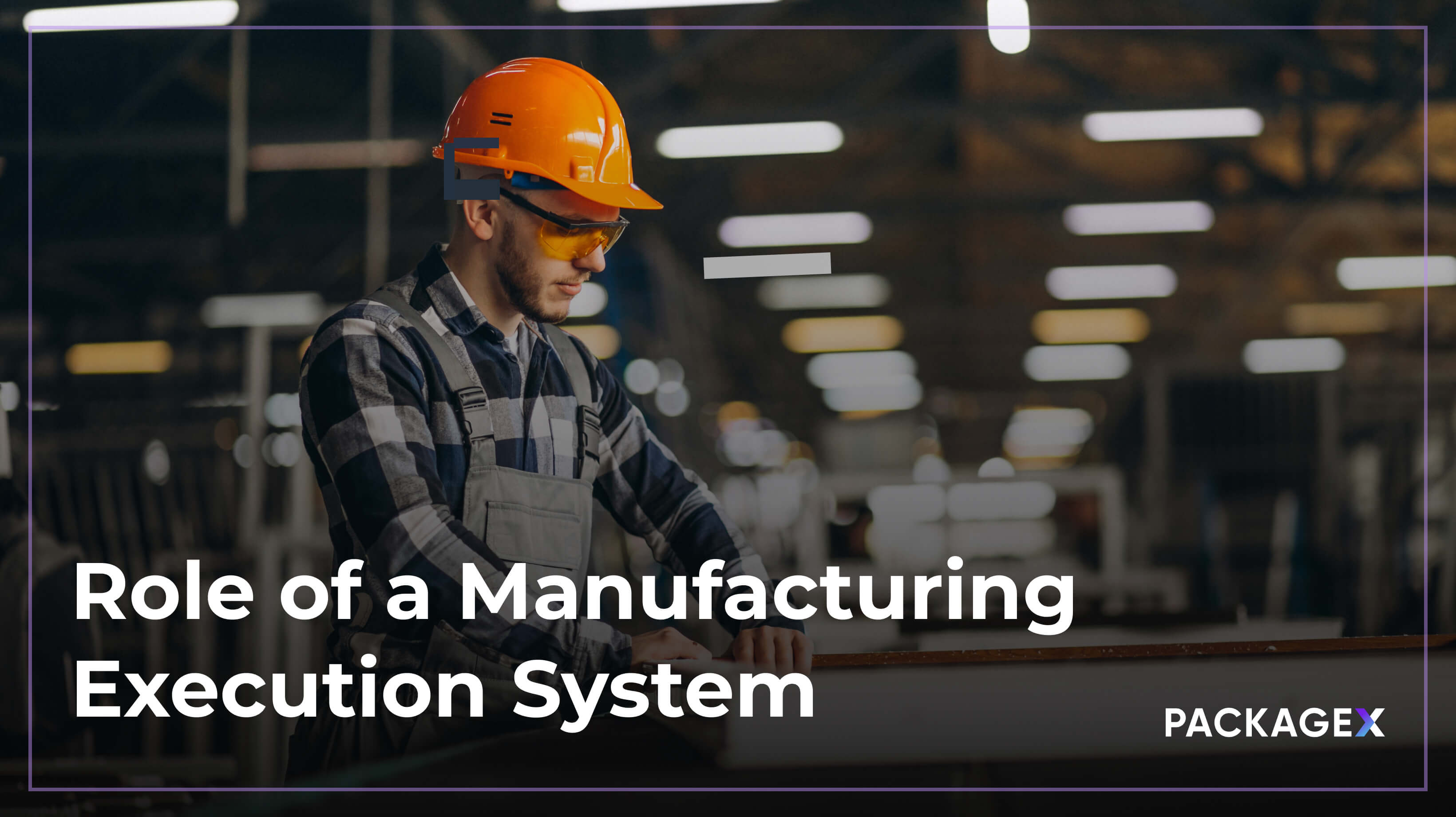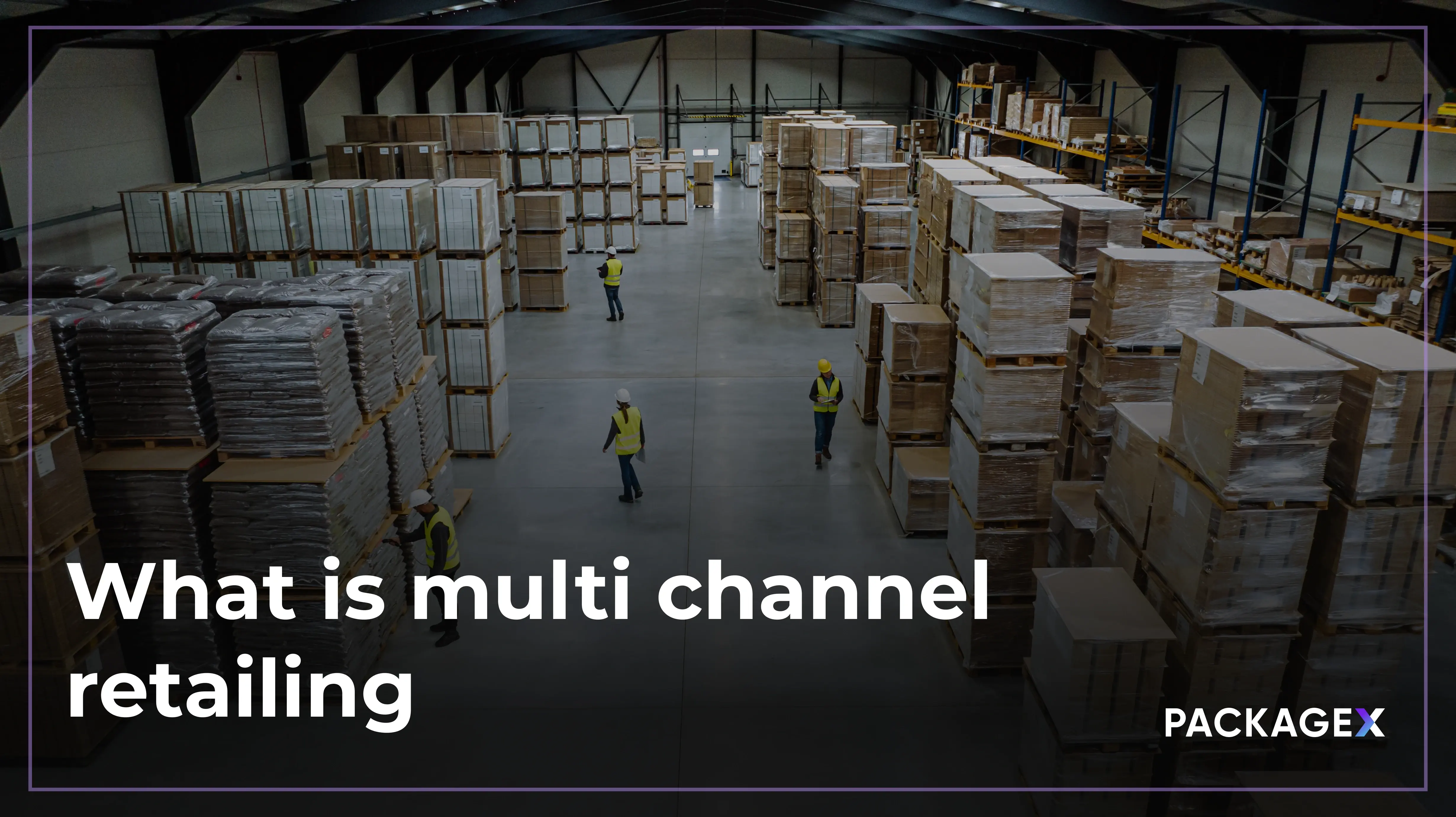Facility management is no longer just about fixing what’s broken. It’s now a strategic powerhouse. In fact, the global facility management market is projected to reach $2.38 trillion by 2034, growing at a 5% CAGR from 2025 to 2034. That shift says a lot.
Today’s buildings need to run smart and lean. That means real-time data, automation, and a seamless user experience.
This is where facility service management software plays a role. Cloud-based platforms and AI-powered facility management tools are leading the charge. They help reduce waste, lower costs, and improve how people use space.
It acts as a key driver of business efficiency and employee well-being. At the heart of it all is integrated FM, where people, systems, and places work as one.
In this blog, we will explore how modern facility management solutions power the spaces we live and work in.
What Is Facility Management?
Facility management means keeping buildings and spaces running well for the people who use them. It involves planning, maintaining, and improving the built environment every day. In simple terms, it’s about people, places, and processes working in sync.
This includes everything from cleaning and repairs to energy systems and office layouts. It ensures safety and productivity for all users, whether in office functions or warehouse management.
Facility management supports both daily needs and long-term goals. It connects physical spaces to business performance. A good facility management system improves how people work and how places perform.
Today, building FM goes far beyond basic maintenance. It includes smart tools and automation. That’s where facility management software steps in. It helps teams manage space, costs, and energy better.
Key Aspects of Facility Management
FM covers many critical areas that keep a building efficient. Here are five core aspects:
- Asset Management
Keeping track of physical assets reduces loss and improves use. A strong facility asset management system extends asset life and saves costs. - Work Order Management
Tasks must be assigned, tracked, and closed on time. Facility management system software automates this and avoids delays. - Emergency Management
Emergencies need fast action. Managers use facility management software tools to plan responses and keep people safe. - Predictive Maintenance
Data predicts when equipment may fail. Computer-aided FM helps prevent breakdowns before they happen. - Energy Management
Lowering energy use cuts bills and carbon footprints. Building facility management software tracks consumption and helps meet green goals.
These functions support smoother operations and long-term cost savings.
Why Is Facility Management Important?
Facility management is now a key business function. Here’s why it matters:
- Helps cut operational costs, especially real estate expenses, by up to 30%.
- Drives better use of energy and supports sustainable FM goals.
- Enhances workplace comfort, resulting in increased employee satisfaction and productivity.
- Enhances safety by ensuring buildings comply with evolving health standards.
- Reduces downtime by using facility asset management software for preventive care.
- Boosts order fulfillment through smarter maintenance and scheduling tools.
- Supports faster decision-making using data from modern facility management services.
- Makes spaces more adaptable to changing needs and workforce shifts.
A strong management approach ensures the building supports both people and performance. The benefits go beyond cost. It’s about creating smart, efficient, and safe environments that help organizations grow.
Types of Facility Management
Facility management covers different areas, each with a specific focus. The three main types are Hard FM, Soft FM, and Integrated FM (IFM).
1. Hard Facilities Management
Hard FM deals with physical systems that keep a building running. This includes HVAC, plumbing, lighting, and fire safety. These services are non-negotiable. Without them, the space can’t operate.
Modern buildings rely on automated facility management systems to manage these assets efficiently. Tools like facility asset management software track usage, detect issues, and reduce downtime.
2. Soft Facilities Management
Soft FM focuses on people and experience. It includes custodial services, security, landscaping, and catering. These services improve comfort, safety, and daily operations.
Facility management software tools often help manage scheduling, vendors, and service quality for Soft FM.
3. Integrated Facility Management (IFM)
IFM combines both hard and soft services under one provider. This streamlines workflows and cuts down on overhead.
Integrated facility management systems offer better coordination, fewer delays, and easier reporting.
Enterprise FM software helps large companies scale these services. Many companies now use IFM to offer end-to-end solutions.
What Does a Facility Manager Do?
Facility managers keep buildings safe, functional, and efficient. Their work falls into four core areas:
1. Daily Building Operations
- Oversee cleaning, maintenance, and landscaping tasks.
- Manage security systems and plan for emergencies.
2. Strategic Planning & Budgeting
- Handle long-term inventory management and capital expenditure decisions.
- Lead lease negotiations and construction or renovation projects.
3. Technology & Automation
- Deploy FM tools to streamline operations.
- Use facility management apps for real-time task tracking and updates.
4. Sustainability & Compliance
- Ensure LEED certifications and green building practices.
- Conduct energy audits and track environmental metrics.
- Maintain regulatory compliance across all systems.
Facility managers rely on a building facility management system to manage these tasks. With the right facility software management, they improve performance and reduce risk, day after day.
Key Skills Every Facility Manager Needs
Facility managers need a sharp mix of strategic and technical skills. Here's what stands out:
- Strategic thinking: Plans for long-term facility needs and resource allocation.
- Budgeting and cost control: Manages expenses and keeps operations within budget.
- Vendor and contract management: Oversees third-party logistics services and ensures service level compliance.
- Familiarity with FM platforms: Uses the best facility management tools for daily operations.
- Crisis and risk management: Handles emergencies and ensures business continuity.
- Tech proficiency: Operates cloud-based facility management software and mobile apps.
- Certifications: Programs like FMP or CFM offer added expertise in program FM.
Strong facility managers use a mix of leadership, planning, and digital tools to keep everything running.
Facilities Management vs Property Management
Although these roles may seem similar, they have distinct roles in commercial real estate and FM.
The Role of IFMA and Industry Certifications
IFMA plays a key role in shaping global facility management standards and growing professional expertise.
- Global Support: IFMA supports FM professionals across the world.
- Standard Setting: IFMA helps define smart, safe, and sustainable FM practices.
- Program Value: A solid FM program boosts career growth and trust.
- Industry Alignment: Many facility management software companies follow IFMA standards.
- Tool Credibility: This ensures tools meet the needs of modern building operations.
Future of Facility Management Technology
The future of facilities management is increasingly driven by technology, helping teams optimize operations with reduced costs.
- Utility Tracking Software: Automates data collection from utility bills to identify inefficiencies, optimize energy usage, and predict future spending.
- Sensor Technology: Uses air quality, occupancy, and equipment sensors to detect abnormalities, improving building efficiency, occupant comfort, and equipment performance.
- Facilities Management Software: Integrates various operations, such as maintenance scheduling and communication, to streamline processes and support data-driven decisions with computer-aided facilities management system.
- Artificial Intelligence (AI): Powers smarter buildings by analyzing trends, predicting maintenance needs, and improving space management and sustainability initiatives.
- Internet of Things (IoT): This technology connects devices and sensors to gather and analyze data for real-time visibility, predictive facilities maintenance, and building performance optimization.
- Sustainability Initiatives: AI helps monitor water usage, reduce waste, and achieve green certifications like LEED, contributing to environmental goals.
- Health & Safety: AI and sensors ensure compliance with regulations by monitoring air quality, temperature, and touchpoints in shared spaces.
Real-World Example
WeWork is a global flexible workspace provider with high daily package and asset movement. Their teams struggled with tracking deliveries and managing building inventory across multiple locations.
Challenge:
Manual delivery tracking created delays and data gaps. Staff entered package details manually, which increased errors and slowed down mailroom operations. Without a unified FM solution, real-time visibility was limited, and asset loss was a concern.
How PackageX Helped:
WeWork deployed PackageX, an AI-powered facility management platform. Using barcode scanning and OCR, the team automated package intake and inventory tracking. The facility software management tools helped digitize the process, enabling faster, error-free operations.
Results:
- 40% reduction in mailroom errors.
- Faster package logging across all sites.
- Improved visibility with a searchable audit trail.
- Streamlined workflows through automation and mobile access.
How PackageX Can Help Facility Management Operations?
PackageX simplifies facility operations with automation that cuts delays and manual errors. It helps teams manage assets, deliveries, and workflows using real-time data and powerful software tools.
Here’s how PackageX can help:
- Automates package intake with OCR-based delivery logging
- Tracks assets in real-time to prevent loss and misplacement
- Works with your existing FM system software
- Gives access to online FM software on any device
PackageX offers an automated facility management system built to support teams across buildings, offices, and campuses. It’s one of the most flexible facility management software tools available today.
FAQs
What is the role of a facility manager?
A facility manager ensures that buildings and spaces run efficiently and safely. They handle maintenance, safety, and daily operations while supporting workplace productivity. Their role also includes budgeting, compliance, and vendor coordination.
What are the three main tasks of facilities management?
The three core tasks are building maintenance, space management, and ensuring health and safety compliance. These functions keep operations smooth and employees comfortable. Many teams use FM software to streamline these tasks.
How is facility management different from property management?
Facility management focuses on supporting the people and processes inside a space. Property management deals more with the building itself, like leasing, rent collection, and upkeep. The two roles often work together but serve different goals.
What are the types of facility management services?
FM services are typically divided into hard and soft services. Hard services maintain the physical building, like HVAC, plumbing, and safety systems. Soft services include cleaning, security, catering, and overall workplace experience.




.webp)